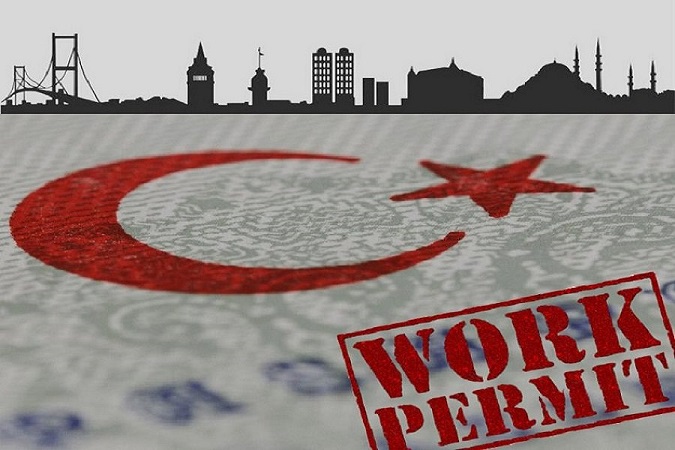EU Blue Card
Are you a highly-qualified worker wishing to work in an EU country?
If so, you might be able to get an EU Blue Card. On these pages you can find out what an EU Blue Card is, how to apply for one and learn more about the rights that an EU Blue Card holder can enjoy. Some EU countries may offer other employment permits for highly-qualified workers in addition to the EU Blue Card.
What is an EU Blue Card?
An EU Blue Card gives highly-qualified workers from outside the EU the right to live and work in an EU country, provided they have higher professional qualifications, such as a university degree, and an employment contract or a binding job offer with a high salary compared to the average in the EU country where the job is. The EU Blue Card applies in 25 of the 27 EU countries. It does not apply in Denmark and Ireland.
What is a highly-qualified worker?
You are considered a highly-qualified worker if you have a work contract of at least one year, and if you meet the conditions listed below.
What conditions must I fulfill to apply for an EU Blue Card?
- You must prove that you have ‘higher professional qualifications’, by showing a higher education qualification (such as a university degree). Some Member States may also accept at least five years of relevant professional experience. (see more in the FAQ section);
- You must work as a paid employee – the EU Blue Card does not apply to self-employed work or entrepreneurs;
- Your annual gross salary must be high, at least one and a half times the average national salary – except when the lower salary threshold applies;
- You must present a work contract or binding job offer in an EU country for at least one year;
- You must have the necessary travel documents. You must have health insurance for yourself and any relatives who come to the EU with you.
- You must prove that you fulfill the legal requirements to practice your profession, where this profession is regulated (see more on regulated professions in the FAQ section).
Where can I apply?
You or your employer must submit an application for an EU Blue Card to the competent national authorities in the country where you wish to work. Depending on the rules in that country, you may have to pay an application fee.
How do I find a vacancy in the EU?
European employers use different services and communication tools to post their job vacancies. They can post them directly on their website or use other channels as: public employment services, private employment agencies and recruitment agencies, specialized websites and publications, universities, etc.
How long can I work with an EU Blue Card?
Normally you can stay and work for a period of between one and four years. The card may also be renewed for the same period as long as you still satisfy all the conditions. With a valid EU Blue Card, you can enter, re-enter and stay in the EU country which has issued the card. You can also pass through other EU countries and stay there for up to three months (read more below).
Am I free to change jobs and/or employer?
Not immediately. For the first two years you must stay in the job for which you got the Blue Card in the first place, unless you have permission from the national authorities to change jobs. After those first two years, you may be able to change jobs and/or employers.
Can I bring my family with me?
Yes, you can apply to bring your family to live with you in the country which issues your EU Blue Card as long as you and they meet all the conditions.
Does the EU Blue Card allow me to travel to other EU countries?
Yes. You can visit other EU countries for up to three months during a six-month period. You can also travel through other EU countries on your way to the EU country that you live and work in.
Can I work in other EU countries?
After 18 months you may move to a different EU country to work in highly-skilled employment. You must apply for a new EU Blue Card in the country you wish to move to.
What other rights do I have?
As a holder of an EU Blue Card, you are guaranteed equal treatment with citizens of the host country as regards:
– Working conditions;
– Professional education and training;
– Recognition of diplomas and qualifications;
– Social security and
– Access to goods and services offered to the public (e.g. transport, museums, restaurants, etc.)
With an EU Blue Card, it will be easier for you to get long-term residence status, as the rules for calculating the period of time necessary are more generous (you can add together periods of time spent in different EU countries, instead of the whole five years being in just one EU country).
What happens if I lose my job?
If you become unemployed, you have three months to find a new job. If you are still unemployed after three months, your EU Blue Card may be withdrawn. If that happens, you may have to leave the country.
Are there any other risks of losing my EU Blue Card?
You could lose your EU Blue Card for any of the following reasons:
– You no longer meet the necessary conditions outlined above.
– It is found out at a later stage that your application was based on false information or documents.
– You present a threat to public policy, public security or public health.
– You do not have sufficient financial resources to maintain yourself and your family members without social assistance.
If anything like this happens, you will be informed by the competent national authorities.
May I argue against a decision to refuse or withdraw my EU Blue Card?
Yes, you will be able to legally challenge such a decision with the relevant national authorities.
What happens if I overstay my EU Blue Card?
If you overstay the validity period of your EU Blue Card, you will find yourself in an irregular situation and may be required to leave the country.
Where do EU Blue Card holders come from?
EU Blue Cards by citizenship in 2014 – Top 20 (112 nationalities in total)
What are regulated and unregulated professions?
A profession is said to be regulated when access and exercise is subject to the possession of a specific professional qualification.
Unregulated professions do not require specific professional qualifications.
What do we mean by ‘Higher professional qualifications’?
Higher professional qualifications are:
(1) qualifications attested by evidence of higher education qualifications of studies that lasted at least three years. This means any diploma, certificate or other evidence of formal qualifications issued by a competent authority attesting the successful completion of a post-secondary higher education programme. This must be a set of courses provided by an educational establishment recognized as a higher education institution by the State in which it is situated.
Foreign educational qualifications usually need to be recognized by the Member States in question. This means that you need a formal acknowledgement by a competent authority of the validity of a foreign qualification with a view to access to educational and/or employment activities.
(2) Some Member States (DE*, EE, EL, ES, FR, LT, LU, MT**, PL, PT, SE and SK) also allow for relevant professional experience to be taken into account. This must be at least five years of professional experience of a level comparable to higher education qualifications and which is relevant in the profession or sector specified in the work contract or binding job offer. Professional experience means the actual and lawful pursuit of the profession concerned.
* DE foresees the option to use this derogation through a regulation, which is currently not in force.
** MT: at least 10 years of professional experience.
What is a labour market test?
Mechanism that aims to ensure that migrant workers are only admitted after employers have unsuccessfully searched for national workers, EU citizens (in EU Member States this also means EEA workers) or legally residing third-country nationals with access to the labour market according to national legislation.
(1) The labour market test (LMT) is implemented and applied widely in most Member States. Where the LMT is applied some categories of workers can be exempt, reflecting the specific national situations and priorities.
(2) Member States apply different methodologie in undertaking LMTs. In general, a considerable role is left to employers and public employment services. Duration of the verification process varies among Member States.
(3) For further information, see EMN: Satisfying labour demand through migration, June 2011.
Source: EU Immigration Portal




